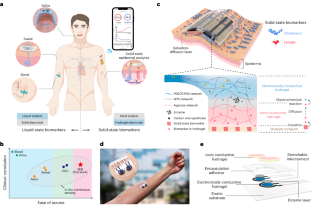2024-08-19 カロリンスカ研究所(KI)
<関連情報>
- https://news.ki.se/ai-model-aids-early-detection-of-autism
- https://jamanetwork.com/journals/jamanetworkopen/fullarticle/2822394
最小限の医療情報と背景情報から自閉症スペクトラム障害を機械学習で予測する Machine Learning Prediction of Autism Spectrum Disorder From a Minimal Set of Medical and Background Information
Shyam Sundar Rajagopalan, PhD; Yali Zhang, MSc; Ashraf Yahia, MBBS, PhD; et al
Jama Network Open Published:August 19, 2024
DOI:10.1001/jamanetworkopen.2024.29229

Key Points
Question Can a machine learning (ML) model based on minimal background and medical information accurately predict autism spectrum disorder (ASD)?
Findings This diagnostic study of 30 660 participants using ML prediction of ASD with only 28 features found high predictive accuracy, sensitivity, and specificity. Validation on independent cohorts showed good generalizability, and developmental milestones and eating behavior emerged as important predictive factors.
Meaning The model developed in this study shows promise in the early identification of individuals with an elevated likelihood of ASD, using minimal information, which could affect early diagnosis and intervention strategies.
Abstract
Importance Early identification of the likelihood of autism spectrum disorder (ASD) using minimal information is crucial for early diagnosis and intervention, which can affect developmental outcomes.
Objective To develop and validate a machine learning (ML) model for predicting ASD using a minimal set of features from background and medical information and to evaluate the predictors and the utility of the ML model.
Design, Setting, and Participants For this diagnostic study, a retrospective analysis of the Simons Foundation Powering Autism Research for Knowledge (SPARK) database, version 8 (released June 6, 2022), was conducted, including data from 30 660 participants after adjustments for missing values and class imbalances (15 330 with ASD and 15 330 without ASD). The SPARK database contains participants recruited from 31 university-affiliated research clinicals and online in 26 states in the US. All individuals with a professional ASD diagnosis and their families were eligible to participate. The model performance was validated on independent datasets from SPARK, version 10 (released July 21, 2023), and the Simons Simplex Collection (SSC), consisting of 14 790 participants, followed by phenotypic associations.
Exposures Twenty-eight basic medical screening and background history items present before 24 months of age.
Main Outcomes and Measures Generalizable ML prediction models were developed for detecting ASD using 4 algorithms (logistic regression, decision tree, random forest, and eXtreme Gradient Boosting [XGBoost]). Performance metrics included accuracy, area under the receiver operating characteristics curve (AUROC), sensitivity, specificity, positive predictive value (PPV), and F1 score, offering a comprehensive assessment of the predictive accuracy of the model. Explainable AI methods were applied to determine the effect of individual features in predicting ASD as secondary outcomes, enhancing the interpretability of the best-performing model. The secondary outcome analyses were further complemented by examining differences in various phenotypic measures using nonparametric statistical methods, providing insights into the ability of the model to differentiate between different presentations of ASD.
Results The study included 19 477 (63.5%) male and 11 183 (36.5%) female participants (mean [SD] age, 106 [62] months). The mean (SD) age was 113 (68) months for the ASD group and 100 (55) months for the non-ASD group. The XGBoost (termed AutMedAI) model demonstrated strong performance with an AUROC score of 0.895, sensitivity of 0.805, specificity of 0.829, and PPV of 0.897. Developmental milestones and eating behavior were the most important predictors. Validation on independent cohorts showed an AUROC of 0.790, indicating good generalizability.
Conclusions and Relevance In this diagnostic study of ML prediction of ASD, robust model performance was observed to identify autistic individuals with more symptoms and lower cognitive levels. The robustness and ML model generalizability results are promising for further validation and use in clinical and population settings.


